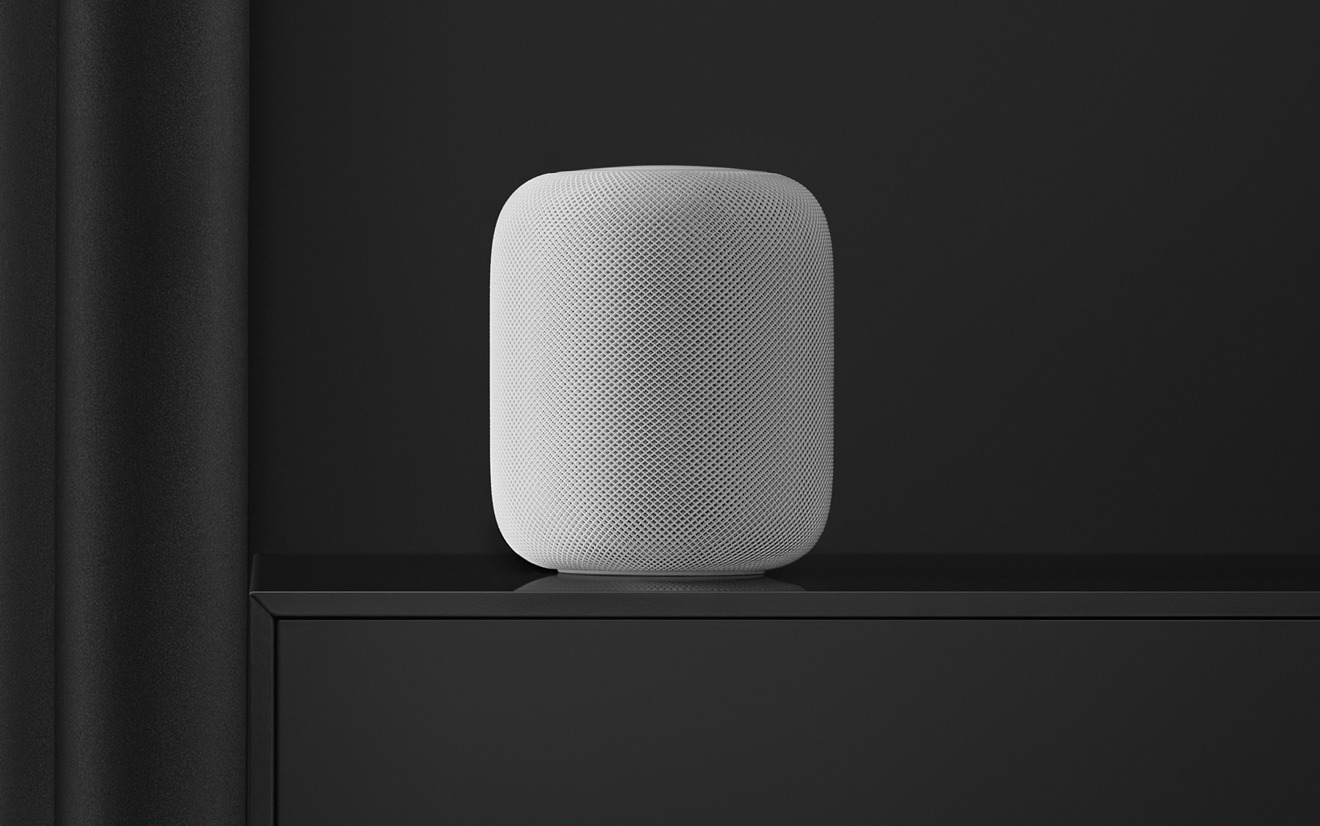Apple's HomePod is edging its way into the U.S. smartspeaker market, but has plenty of ground to cover if it wants to catch up with industry leaders Amazon and Google.
The device has an install base of 6 percent, or about 3 million, according to the latest estimates by Consumer Intelligence Research Partners, seen by AppleInsider. Amazon's Echo speakers control about 70 percent, while Google Home devices have 24 percent. The U.S. market is thought to have about 50 million installed speakers in total as of the June quarter.
In a report, CIRP co-founder Josh Lowitz called Apple's performance "a small but meaningful share" claimed from its competitors. At the same time however he noted that Amazon has been in the industry for years, and that both Amazon and Google have low-cost devices believed to account for "at least half" of unit sales.
As a result, "it's not clear how much further Apple can establish itself in the market without a more competitive model," Lowitz remarked. The analysts also failed to mention that the HomePod has yet to see a holiday sales period.
Apple has been gunning for high-end audio with the first-generation HomePod, which costs $349. That makes it far more expensive than the Echo Dot and Home Mini, both of which are around $49. Those products are deliberately bare-bones, but the HomePod is also more expensive than the standard Echo and Home models, priced at $99.99 and $129 respectively.
It's also costlier than devices like the touchscreen-equipped Echo Show and the Alexa-equipped Sonos One, the latter of which is $199 but often compared to the HomePod in sound quality. Sonos is even selling a two-unit bundle for $379, just $30 more than a single Apple speaker.
Also probable, is that Apple is holding a large portion of the profit in the new market segment.
Apple has been rumored as considering a cheaper HomePod model in light of a weak market position. Even a low-cost model could face an uphill battle though, since many Echo and Home owners have multiple speakers and are unlikely to switch over their household.
The HomePod has also been criticized for the limitations of Siri, which is typically considered inferior to Amazon Alexa and Google Assistant. Indeed the only music service natively supported by Siri is Apple Music, whereas Alexa or Assistant users can choose one of several, albeit normally excluding Apple Music unless they're on AirPlay 2-compatible Sonos gear.
 Roger Fingas
Roger Fingas







-m.jpg)






 Marko Zivkovic
Marko Zivkovic
 Christine McKee
Christine McKee
 Andrew Orr
Andrew Orr
 Andrew O'Hara
Andrew O'Hara
 William Gallagher
William Gallagher

 Mike Wuerthele
Mike Wuerthele
 Bon Adamson
Bon Adamson


-m.jpg)


23 Comments
The HomePod is definitely hitting above its weight in audio quality. Likely, this is the new battleground, so can't wait until the competition throws stuff against the wall to compete, but will there be some worthy competitors? Likely from Google and Amazon, both of whom have a software advantage over third parties, and Amazon especially with it's embedded sales advantage. Sonos isn't going to get frozen out, but it just makes price point more difficult.
Our HomePod is used every day. Great sound quality. Perfect for the master bath while we get ready in the morning.
I bought one homepod...i have to say, at the time, i had zero intention of ever buying a second one. The BASS DID IT FOR ME. There are speakers that put out a ‘ manufactured’ sounding bass. The homepod has a depth and richness only my 5 feet tall speakers can approximate. It is more noticeable on certain genres of music than others but it is there. Subtle but powerful. I bought a second homepod. It wasn’t the ‘holy cow’ some youtube reviewers claim but it was a purchase i am glad i made. You can truly hear the separation between the 2 homepods when you place them 8 or more feet apart. It is not fair to compare them with amazon or google..to do so is like comparing a Porche and a vw bug just because both are cars. I will say SIRI completely sucks.